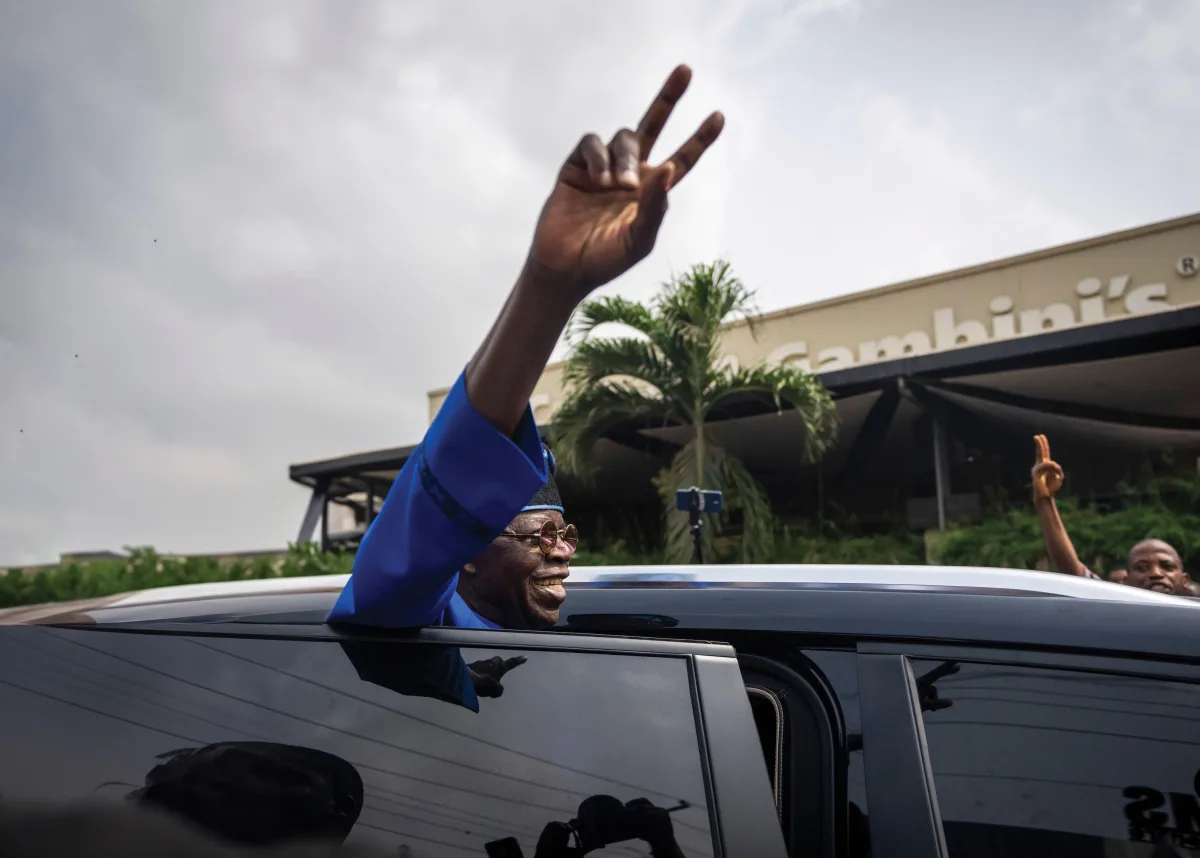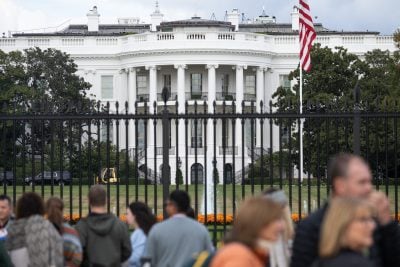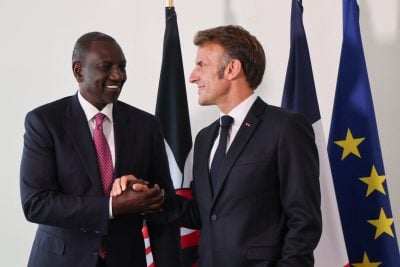As Bola Tinubu surveyed the assembled dignitaries in Abuja’s Eagle Square on 29 May, Nigeria’s new president could have been forgiven for wondering what he had let himself in for.
Inflation was running at 22%, the highest for 18 years. Public finances were crippled by fuel subsidies that guzzled nearly a quarter of the government’s budget. Oil production, the major source of export revenues, remained at a near 30-year low. Militancy continued to plague various parts of the country.
Tinubu, the 71-year-old former governor of Lagos State, belongs to the same political party as his predecessor, Muhammadu Buhari. But while the then 80-year-old former president clung rigidly to economic policies that the rest of the world has largely eschewed since the 1980s – with predictably dire results – Tinubu has charted a dramatically different course since taking office.
The new president used his inaugural address to confirm the immediate removal of fuel subsidies. Days later, he brought an end to the confusing system of multiple exchange rate “windows” for the national currency, allowing the naira’s official and black-market rates to begin to converge. Tinubu also wasted little time in dismissing several high-profile officials, including the governor of the Central Bank of Nigeria (CBN), Godwin Emefiele, who now faces prosecution on corruption charges.
Influential voices are optimistic that Nigeria’s economy is now poised to begin its recovery. The new administration has brought a “massive step change” in policymaking, says Danladi Verheijen, co-founder and managing partner at Verod Capital, one of Nigeria’s largest private equity firms.
“It’s a much better cabinet, much more pro-business,” he says. Newly appointed officials such as finance minister Wale Edun and the CBN’s new governor, Olayemi Cardoso, are far more “private sector-led growth oriented” than their predecessors, Verheijen adds.
As a result, he is seeing signs that international investors, after years of shunning Nigeria, are ready to give the country another chance. “The business class section on the flights into Nigeria is full again.”
Nigeria’s challenge – import less, make more
For decades, Nigeria’s economic model had been based around exporting crude oil and importing almost everything else.
The bankruptcy of this approach is now clear to see. Many Nigerians are struggling to afford basic necessities, particularly since Tinubu’s currency reforms caused imported goods to become more expensive. Millions of young adults have little or no paid employment, reflecting the longstanding neglect of the manufacturing and agricultural sectors.
The challenge for Nigeria boils down to a simple reality. The country needs to stop importing so many goods that could easily be produced locally. Ideally, it also needs to start exporting a much greater range of value-added products to international markets. If Tinubu can move the needle on this challenge, his presidency is sure to be considered a success.
Efforts are certainly underway to bring fundamental change to Nigeria’s economy. One glimpse into a possible future can be seen 65km outside of Lagos, where the Lagos Free Zone, which includes a recently-opened deep water port, aims to become a major manufacturing hub.
The first fully privately-owned free zone in the country, it is operated by Singaporean conglomerate Tolaram. Investors that establish manufacturing facilities within the 850-hectare site benefit from a generous range of tax and customs incentives. Consumer goods giants including Kellogg’s and Colgate-Palmolive, along with German chemicals company BASF, are among the firms to have set up shop.
Tejaswi Avasarala, deputy CEO of the Lagos Free Zone, says that Tolaram’s aim is to “create a thriving ecosystem with world-class infrastructure, facilities and services”. He adds that the completion of Lekki Port, the first modern deep-sea port in Nigeria, in April 2023 has “significantly enhanced” the Free Zone’s overall attractiveness for export-oriented companies.
Infrastructure challenges
The Free Zone is part of a major cluster of developments within the Lekki Industrial Corridor. The new Dangote Petroleum Refinery looms in the distance. An international airport is set to arrive at some point in the future.
But the challenge in attracting the modern consumer industries that Nigeria so badly needs is starkly illustrated by the state of the road between the Lekki Industrial Corridor and the city of Lagos itself. Trucks travelling between the megacity and the industrial hub must endure hours of treacherous conditions along gridlocked and potholed roads.
Avasarala acknowledges that “efficient road connectivity is a critical success factor” for the Free Zone. He points out that construction work is underway to upgrade road links, while a freight rail line is also on the drawing board. The completion of this critical infrastructure cannot come fast enough if the Free Zone is to fill its modern industrial facilities and warehouses with new tenants.
At least in theory, the Free Zone should now be more appealing to manufacturers as a result of the naira’s depreciation against the dollar. Nigeria’s currency lost more than 30% of its value on the official market within days of the new government’s partial liberalisation of the exchange rate regime last June.
“The increased cost of importing goods has made domestic manufacturing more economically viable for many companies,” says Avasarala, who claims that there has been a “noticeable shift” in investor interest in manufacturing within Nigeria.
Yet elsewhere in Nigeria, there is little evidence that the naira’s depreciation is having a positive effect, at least in the short term.
In fact, several major brands have scaled back their Nigerian manufacturing operations since Tinubu took office, owing to lower consumer purchasing power and the higher cost of imported raw materials and other inputs. Proctor & Gamble said in December that it would stop producing health and hygiene products at its Nigerian facilities in the latest blow to Nigerian industry.
Were the changes too much too soon?
This leads to an uncomfortable question for the new administration: has it tried to change too much, too fast?
The removal of fuel subsidies, though widely agreed to be necessary, has brought huge financial hardship for tens of millions of Nigerians. For decades, the government kept petrol prices at artificially low levels. When Tinubu finally removed the subsidies, the price of petrol soared dramatically overnight. Motorists are paying more than three times as much as a year ago to fill up their vehicles.
Whether the subsidy is in fact quite as dead as it appears is debatable. The World Bank suggested in December that a cost-reflective price of petrol would be around N750 ($0.95) per litre, which is about N100 per litre more than consumers are currently paying.
Even so, the subsidy reforms, along with the naira’s depreciation, have had a huge impact on the cost of living. Inflation reached 28% in November, up 6% from when Tinubu took office.
Basic services are teetering. Small hospitals and clinics, for example, “are having a lot of problems keeping up with bills,” says Njide Ndili, country director for Nigeria at healthcare foundation PharmAccess. As well as having to cope with the cost of diesel generators, hospitals find that staff struggle to get to work due to petrol costs, while patients are unable to pay for insurance or treatment.
Stopping the ‘brain drain’
Meanwhile, Ndili adds, the “brain drain” of healthcare professionals has accelerated, as staff flock to developed markets where their earning power is far greater. “We are really at a critical point with human resources for health,” she warns.
Maureen Ogbonna, founder of management consultancy Vallore Nigeria, adds that there are similar trends in other sectors. “A lot of people are migrating out of Nigeria at the moment,” she says, noting that it is often the most educated personnel that have the greatest opportunities to move abroad. “They don’t want to wait for the reforms to kick in.”
It is “a bit too soon to tell” whether Tinubu is really moving the country in the right direction, says Gbemisola Alonge, consultant at advisory firm Africa Practice. She points out that leading credit rating agencies have largely welcomed Tinubu’s reforms, without actually upgrading the country’s rating. “The reason the ratings haven’t improved is because the fundamentals haven’t changed,” she says.
Meanwhile, Alonge suggests that there are “mixed feelings” around some government officials. Although the new CBN governor has been praised by investors for committing to more conventional monetary policies, his repeated postponement of monetary policy committee meetings has brought “uncertainty in policy direction”, Alonge says. “That indecision is a decision in itself, because choosing not to meet means you’re choosing to retain the rates the way they are.”
Economic potential is far from realised
Nigeria’s economic potential is recognised around the world, not least because of the sheer size of its market. The UN expects the country’s population to grow from around 220m today to 374m by 2050 – by which time Nigeria will be on the brink of overtaking the United States as the world’s third most-populated country.
Yet Nigeria’s “potential” is only discussed so much because it remains so far from being realised. Despite its massive oil wealth, by some metrics, Nigeria is one of the world’s least developed countries. Life expectancy is shockingly low, at just 53.9 years according to UN figures – the second worst in the world.
Tinubu faces an enormous challenge as president in reversing the trends that have seen Nigeria sink into economic and social malaise.
Yet, there are many reasons for optimism. The country’s tech sector has flourished over the past decade, producing more billion-dollar “unicorns” than the rest of Africa combined. Digital infrastructure has rapidly spread across the country, bringing at least basic connectivity to the vast majority of the population, and paving the way for a range of business innovations. And, of course, Nigeria is renowned for its entrepreneurial culture and ability to produce world class business leaders.
Bucking the trend
Regardless of whether or not Tinubu proves more effective than his predecessors, the country’s entrepreneurs are determined to press ahead with their efforts to unleash Nigeria’s potential.
“We’ve not grown up expecting a lot from the government,” says textile entrepreneur Chekwas Okafor. “I’m sure they’re doing their best, but I do not have any support from the government.”
Okafor spent several years working in the United States, where he started a business retailing luxury African fashion. But, partly inspired by the success of Nigeria’s iconic 2018 World Cup football shirt, he decided to return to his home country in an effort to help revive its moribund garment manufacturing industry.
Okafor’s company Onchek now operates two facilities in Lagos – one where cotton yarn is knitted into fabric and a second where the fabric is cut and sewed into t-shirts for the local market. In total, around 200 people are employed across the two sites.
If Okafor is to succeed, he will have to buck the trend in an industry where Nigeria has been comprehensively outcompeted by Asian rivals over recent decades. Hundreds of thousands of jobs have been lost, especially in northern cities, since the heyday of Nigeria’s textile industry in the 1980s.
The Buhari administration announced several initiatives to revive garment manufacturing, but never appears to have made a serious effort to implement its plans.
Can Tinubu do better? Even if Okafor is not banking on government support, he does believe the new administration is “thinking about [manufacturing] a lot more now, because of the dollar situation”. He is confident that the naira’s devaluation will have a positive long-term impact on the sector, given the increased costs of importing goods.
Making the vision a reality
It does not in fact take too great a leap of imagination to see Nigeria, with its low labour costs, becoming a significant manufacturer of garments worn by customers around the world.
As with so many areas, Nigeria’s potential is clear. Identifying the need for change and drawing up a vision for the future is the easy part for Tinubu and his team as they seek to bring far-reaching reforms to the Nigerian economy.
Tinubu has toured the world since taking office, appearing in capitals across Europe and the Middle East, as he attempts to persuade foreign investors to invest in Nigeria.
Whether his efforts will succeed depend not on his government’s plans, but on its performance – on his ability to demonstrate to foreign multinationals, as well as home-grown entrepreneurs, that a more conducive business environment is in place.
“It’s not rocket science,” says investment advisor Olugbolahan Mark-George. “We’re not short of policies and documents – it’s execution that’s the critical thing.”
Want to continue reading? Subscribe today.
You've read all your free articles for this month! Subscribe now to enjoy full access to our content.
Digital Monthly
£8.00 / month
Receive full unlimited access to our articles, opinions, podcasts and more.
Digital Yearly
£70.00 / year
Our best value offer - save £26 and gain access to all of our digital content for an entire year!

 Sign in with Google
Sign in with Google 



